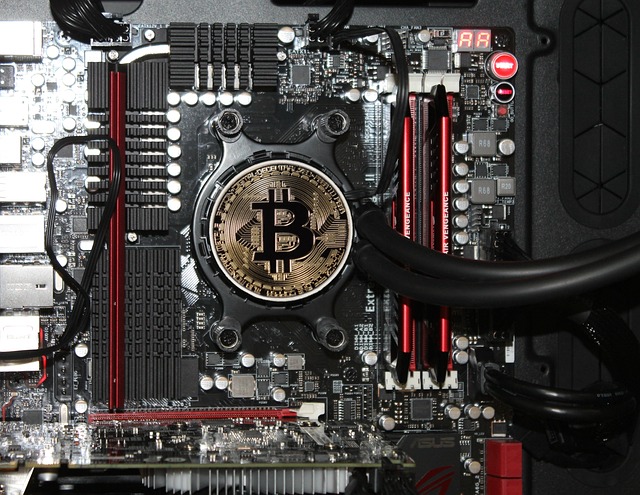Table of Contents
Blockchain technology, often associated with cryptocurrencies like Bitcoin, has far-reaching potential that extends well beyond digital currencies. At its core, blockchain is a decentralized, distributed ledger that records transactions across multiple computers in a way that ensures security, transparency, and immutability. This technology is poised to revolutionize various industries, offering innovative solutions to some of the most pressing challenges in areas such as supply chain management, healthcare, finance, and beyond. This article explores how blockchain is being applied across different sectors and its potential to reshape the future.

The Fundamentals of Blockchain Technology
To understand the broader applications of blockchain, it’s essential to grasp its basic mechanics. A blockchain is essentially a chain of blocks, where each block contains a list of transactions. Once a block is filled, it is added to the chain, forming a continuous and secure record of transactions. Each block is linked to the one before it through cryptographic hashes, creating an unalterable record.
One of the key features of blockchain is its decentralized nature. Unlike traditional databases that are managed by a central authority, blockchain operates on a peer-to-peer network. This means that no single entity has control over the entire chain, making it more secure against tampering and fraud. Additionally, the transparency of blockchain allows all participants in the network to view the same data, fostering trust and accountability.
Blockchain in Supply Chain Management
One of the most promising applications of blockchain technology is in supply chain management. In today’s globalized world, supply chains are complex, involving multiple parties across different regions. This complexity often leads to challenges such as lack of transparency, inefficiencies, and fraud. Blockchain can address these issues by providing a transparent and immutable record of every transaction in the supply chain.
With blockchain, every step of a product’s journey—from raw material sourcing to production, shipping, and final delivery—can be recorded on a shared ledger. This transparency allows all stakeholders to track the product in real-time, ensuring authenticity and preventing counterfeiting. For example, in the food industry, blockchain can be used to trace the origin of ingredients, providing consumers with information about the provenance of their food and ensuring safety and quality.

Moreover, blockchain can streamline supply chain processes by reducing the need for intermediaries. Smart contracts, which are self-executing contracts with the terms of the agreement directly written into code, can automate and enforce contractual agreements between parties. This automation reduces the risk of human error, speeds up transactions, and lowers costs.
Blockchain in Healthcare
The healthcare industry is another sector that stands to benefit significantly from blockchain technology. One of the main challenges in healthcare is the secure and efficient management of patient data. With multiple providers involved in a patient’s care, data is often fragmented across different systems, leading to inefficiencies and potential errors.
Blockchain offers a solution by providing a secure, decentralized platform for managing patient records. With blockchain, patients can have a unified, comprehensive health record that is accessible to authorized providers across the healthcare system. This not only improves the quality of care by ensuring that providers have access to accurate and up-to-date information but also enhances patient privacy and control over their data.
In addition to patient records, blockchain can also be used to improve the traceability and authenticity of pharmaceutical products. Counterfeit drugs are a major problem in the healthcare industry, posing serious risks to patient safety. By using blockchain to track the production and distribution of drugs, stakeholders can ensure the authenticity of products and prevent counterfeit drugs from entering the supply chain.
Blockchain in Finance and Beyond
While blockchain is best known for its role in enabling cryptocurrencies, its applications in the financial sector are much broader. Blockchain can improve the efficiency and security of financial transactions, reducing the reliance on intermediaries such as banks and clearinghouses. This can lead to faster settlement times, lower transaction costs, and increased access to financial services, particularly in regions with underdeveloped banking infrastructure.
One of the most talked-about applications of blockchain in finance is in the realm of cross-border payments. Traditional cross-border transactions can be slow and expensive, often taking several days to settle and involving multiple intermediaries. Blockchain enables near-instantaneous transfers with reduced fees, making it an attractive option for international payments.
Beyond finance, blockchain is also being explored for use in various other industries. In real estate, blockchain can simplify the process of buying and selling property by providing a secure, transparent record of ownership and facilitating transactions through smart contracts. In the entertainment industry, blockchain can be used to manage digital rights and royalties, ensuring that creators are fairly compensated for their work.

Challenges and the Future of Blockchain
Despite its potential, blockchain technology is not without challenges. One of the main hurdles is scalability. As the number of transactions on a blockchain increases, so does the size of the chain, which can lead to slower processing times and higher costs. Additionally, the energy consumption associated with blockchain, particularly with proof-of-work systems like Bitcoin, has raised concerns about its environmental impact.
Interoperability is another challenge, as there are multiple blockchain platforms with different protocols. Ensuring that these platforms can communicate and work together is essential for the widespread adoption of blockchain technology.
However, ongoing research and development are addressing these challenges, and the future of blockchain looks promising. As the technology matures, we can expect to see more industries adopting blockchain to enhance security, efficiency, and transparency.
Conclusion
Blockchain technology has the potential to revolutionize various industries by providing a secure, transparent, and decentralized way to manage data and transactions. While it is most commonly associated with cryptocurrency, its applications extend far beyond digital currencies. From supply chain management and healthcare to finance and beyond, blockchain is poised to reshape the way we conduct business and interact with the world. As the technology continues to evolve, it will likely play an increasingly important role in our digital future, unlocking new opportunities and driving innovation across a wide range of sectors.

